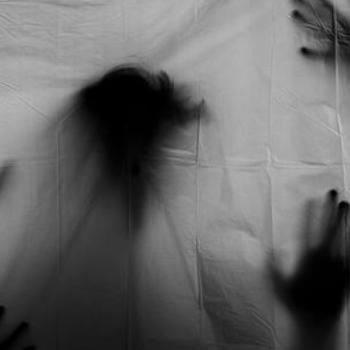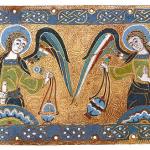If I Were a Calvinist or an Atheist
*Note to would-be commenters: Keep your comment relatively brief and kind, civil and respectful, or it will not appear here. This is a moderated blog, not a discussion board. Think of it as like an opinion page in a newspaper; not all letters to the editor get published. Do not include any links or photos.*
Again there has been a mass school shooting in the USA. As many as sixteen elementary school children killed by a lone gunman. This has happened before and will happen again unless major changes are made to gun laws. But, of course, the ARA, American Rifle Association, will almost certainly fight such new laws as they have in the past, even in the face of such horrific events. “Guns don’t kill people; people kill people” is just a cliche that can no longer be used because what is clear is that guns do kill people when they are in the wrong hands. And all too often, they are.
But this blog post is not about gun reform; I’m a theologian so I will focus, at least now, here, on theology in the face of such evil as this.
I began this blog as a place to respond to the growing influence of hard-core, aggressive Calvinism in America (now elsewhere as well). The so-called “Young, Restless, Reformed Movement” (YRRM) was sweeping through college and university campuses under the influence of people like John Piper and Wayne Grudem. I was at the starting place when that movement began. I was teaching Christian theology as a non-Calvinist at Bethel College and Seminary in Minnesota. Piper and Grudem had been there not long before me, also teaching biblical studies and theology, but left before I came on faculty.
Many of my students were quoting Piper and Grudem in class as if what they wrote and taught was God’s Word. Of course, neither of them ever said that about what they taught and wrote, but many young (mostly male) Christians latched onto their teachings about God’s sovereignty as if it is the only orthodox, biblical interpretation.
Over the years I have said here many times that IF I were a Calvinist I would have to look at a horror such as unfolded yesterday in Uvalde, Texas and praise God for it. Let me be clear: I do NOT praise God for it! But IF I were a Calvinist I would have to if I wanted to be logically consistent. I realize that very few, if any Calvinists do that, but my argument is they are being inconsistent when they don’t.
Let us be clear here. This kind of Calvinism which goes back to John Calvin himself, if not further back, teaches that everything that happens, without exception, is planned, ordained and rendered certain by God FOR HIS GLORY. Thus, whatever happens, however horrific to us, causes God to smile. Remember the Calvinist hymn “God Moves in a Mysterious Way” — “behind a frowning providence God hides a smiling face.”
According to Piper, events such as the killing of children is truly evil but only because God has forbidden it. But also, God plans, ordains and renders it certain. According to Piper, evil events such as this sadden God—because they are necessary. But they are necessary for the greater glory of God (as is hell)!
*Quick side note: Piper uses the phrase that God “plans, ordains, and governs” all things including what we call evil. A close look at what he means by “governs” reveals, at least to me, that he includes there what earlier Calvinist theologian Charles Hodge and more recent Calvinist theologian Millard Erickson refer to as “renders certain.”*
If you doubt me, read my book Against Calvinism (Zondervan). There I quote extensively from Piper and other Calvinists about this matter.
In case you think I don’t know or understand Piper and his theology, you are wrong. I spent two hours in intense one-on-one conversation with Piper about all of this and about his attempt to get my colleague Greg Boyd fired from Bethel because of his open theism. He told me he would also get me fired for defending Greg, for not opposing him and for saying I am “open to open theism.” I have also read several of his main books about God’s sovereignty and I have watched and listened to lectures and interviews he has delivered and given on Youtube. I have studied Piper’s theology extensively.
IF I were a Calvinist I could not sacrifice my intellect by calling mass shootings of innocent people, especially children, evil. I would have to look above the “secondary causes” and look at God’s ultimate responsibility for them and praise God for rendering certain another event that I would have to believe is ultimately part of God’s plan to glorify himself.
Fortunately, for me, I am not and never have been a Calvinist and so I can look at such horrific events and call them what they are: pure evil. Who is really behind them? Not God but Satan. They are not part of God’s plan and they do not glorify God. To think otherwise is abhorrent to me. I simply cannot understand people who think they are really good on some higher level of God’s secret purpose for planning, ordaining and rendering them certain.
I have here before responded to Calvinists’ accusations that my view, that God permits but does not plan or ordain or render certain such horrible crimes, is no better than theirs. That is simply a dodge on Calvinists’ part. There could be many reasons why God reluctantly permits evil to occur and God’s character is not besmirched by saying “God sadly permits some things to happen that he does not want to happen in any sense.”
If you are a Calvinist and plan to respond here, I will ask you to respond to one question only: Why do you NOT praise God when you hear about a mass shooting including of children—assuming you do not. If you do, then all I can say is you may be consistent but you probably worship a different God than I worship.
Now, what about my “If I were an atheist?” Very simply put, if I were an atheist I would not believe that anything is truly evil. By “evil” I would simply mean, assuming I used the word at all, that I and perhaps most other people find, feel, the event abhorrent, but I would not know why—except social conditioning. I would drop “evil” from my vocabulary. I would express sorrow, sadness, at horrible events like mass shootings, but I would not call them evil because evil implies something more than individual or social abhorrence. If I were an atheist I would not believe in any objective standard of right and wrong; I would not believe in any absolutes. Therefore I would not be able consistently to use the word evil except as an expression of a feeling, even if a feeling shared by many other people.
If you are an atheist and choose to respond here, stick to answering one question. What do you mean by “evil” when referring to any event?

















